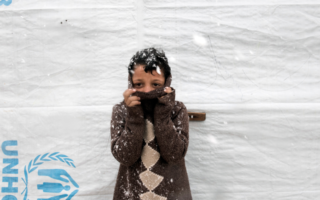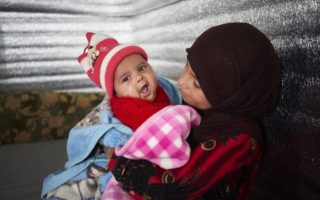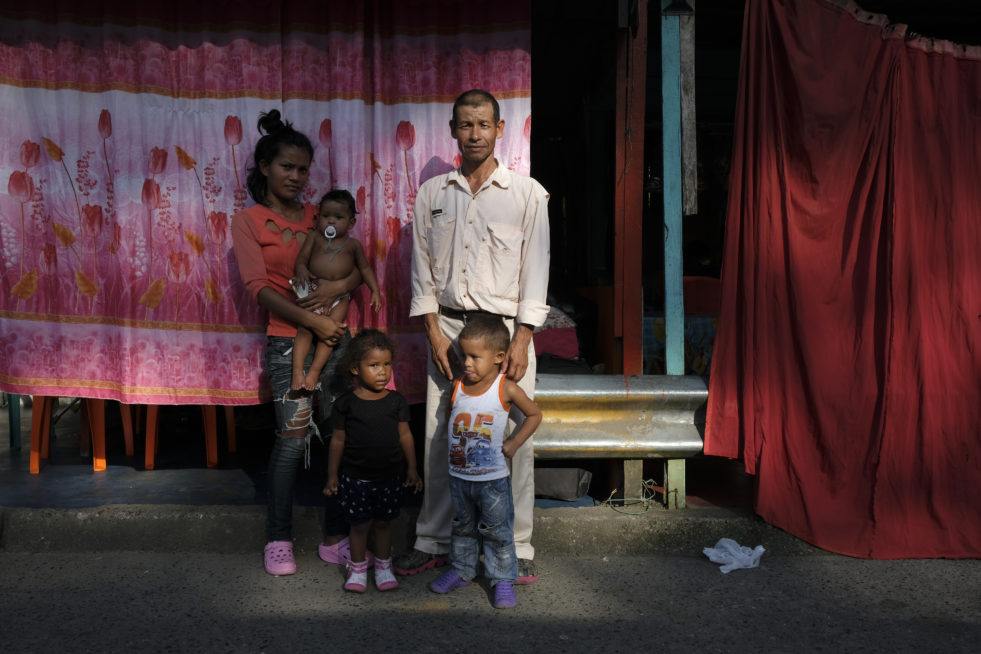
Yuletzi Salazar, a 20-year-old Venezuelan, arrives in Lago Agrio, Ecuador with her young children and her 48-year-old father Fabián. ; Ecuador has a long tradition of welcoming refugees and is now the third largest host country in South America (behind Colombia and Peru) for Venezuelans fleeing the socio-economic situation. Up to 250,000 Venezuelans are estimated to be living in Ecuador and the government is providing forms of legal stay. Some 90,000 residence permits have been issued (as of mid-October 2018). It is also a transit country, with hundreds of thousands travelling onwards. Those who have settled are concentrated in urban areas including Quito, Guayaquil, Manta, Cuenca and Ibarra. At border entry points, UNHCR delivers humanitarian aid, shelter and cash-based assistance to new arrivals, some of whom are very vulnerable and have specific needs or disabilities.
More than three million Venezuelans are living outside of their country of origin—the largest outflow in Latin America’s recent history.
Skyrocketing inflation, a lack of food, medicine and social services, and incidents of violence and insecurity have compelled many Venezuelans to leave—an average of 5,000 a day. The crisis has forced many to seek better opportunities and safety beyond Venezuela’s borders.
UNHCR has scaled up its response to support efforts made by neighbouring countries by providing immediate assistance—including water, food and shelter—as well as assessing their need for protection and other vital services.
Here is a glimpse at the individuals impacted by the ongoing crisis, and a look at how UNHCR is extending hands and hearts to support those on the move.
“When I see the people here, someone says ‘Good morning,’ someone says, ‘How are you?’ This is making me feel good. I know I lost everything back home. But I found here some people to help me.”
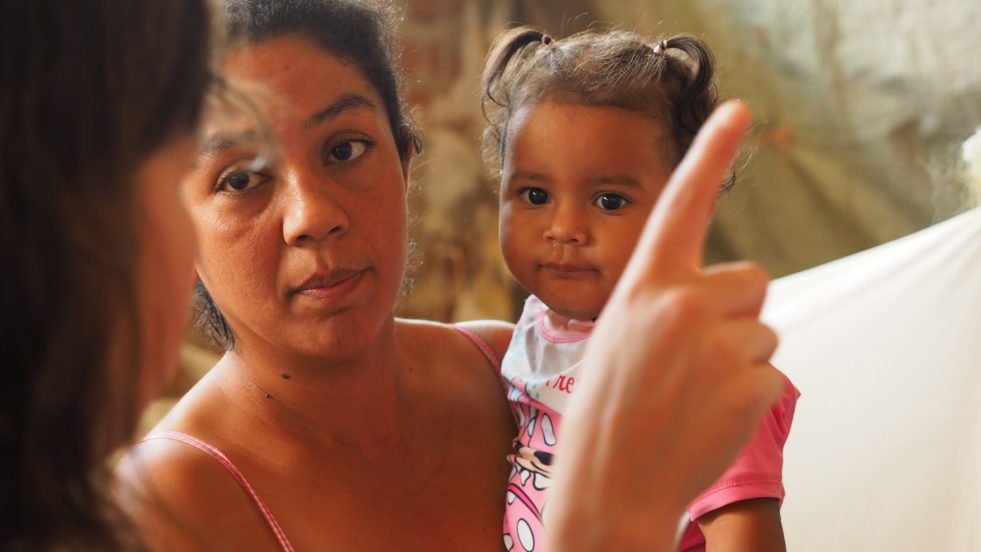
Maria and Luisangel are Venezuelans. When they arrived in Peru, they were received with open arms. They have found a new home in Tumbes, after a Peruvian family offered them a small room to live in, where they have invested their effort, work and the little money they earn to improve the living conditions of the residence.
Now, families who arrive from the northern border to Peru can temporarily find shelter. Over 600,000 refugees and migrants from Venezuela have arrived in Peru during the last years, the vast majority through Tumbes. Many of them do not have resources to find a roof over their heads to sleep, solidarity of Peruvian people has been key to increase protection of the most vulnerable ones.
UNHCR will keep supporting these people and the communities hosting them to increase everyone´s well-being. ; With over 3 million Venezuelans residing outside their country of origin, Latin America is facing the biggest outflow in its recent history. This crisis has forced many to seek better opportunities and safety in neighbouring countries and beyond.
UNHCR has scaled up its response to support the great efforts made by neighbouring countries, like Peru and Ecuador, by providing assistance, needs assessment, protection data, registration, regularization processes and capacity building, among others. ©UNHCR/Elisabet Diaz Sanmartin
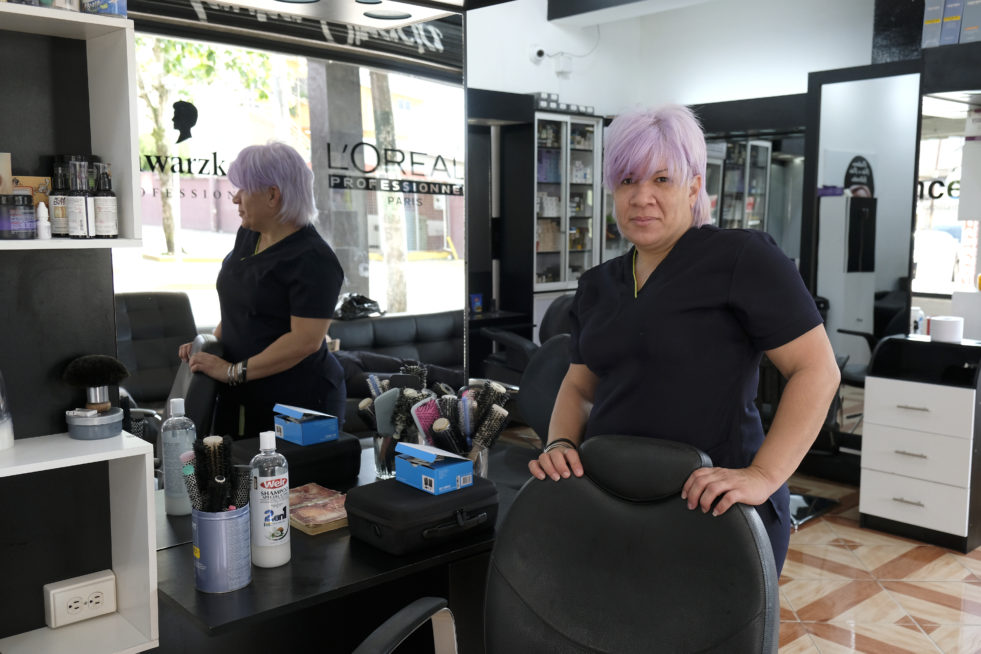
“I only managed to take the cooler with us, the rest is lost.”
Maryory, 46, her partner Dayana, 37, and their two children, are starting over in Lago Agrio, Ecuador. In Venezuela, they owned a hairdressing salon and food business, but they were forced to flee. Now, Maryory works as a stylist and Dayana sells arepas with her 16-year-old daughter Hasheim. Despite the fear of discrimination, as a gay couple, they are determined their children will go back to school and achieve great things. ; Ecuador has a long tradition of welcoming refugees and is now the third largest host country in South America (behind Colombia and Peru) for Venezuelans fleeing the socio-economic situation. Up to 250,000 Venezuelans are estimated to be living in Ecuador and the government is providing forms of legal stay. Some 90,000 residence permits have been issued (as of mid-October 2018). It is also a transit country, with hundreds of thousands travelling onwards. Those who have settled are concentrated in urban areas including Quito, Guayaquil, Manta, Cuenca and Ibarra. At border entry points, UNHCR delivers humanitarian aid, shelter and cash-based assistance to new arrivals, some of whom are very vulnerable and have specific needs or disabilities. ©UNHCR/Santiago Escobar-Jaramillo
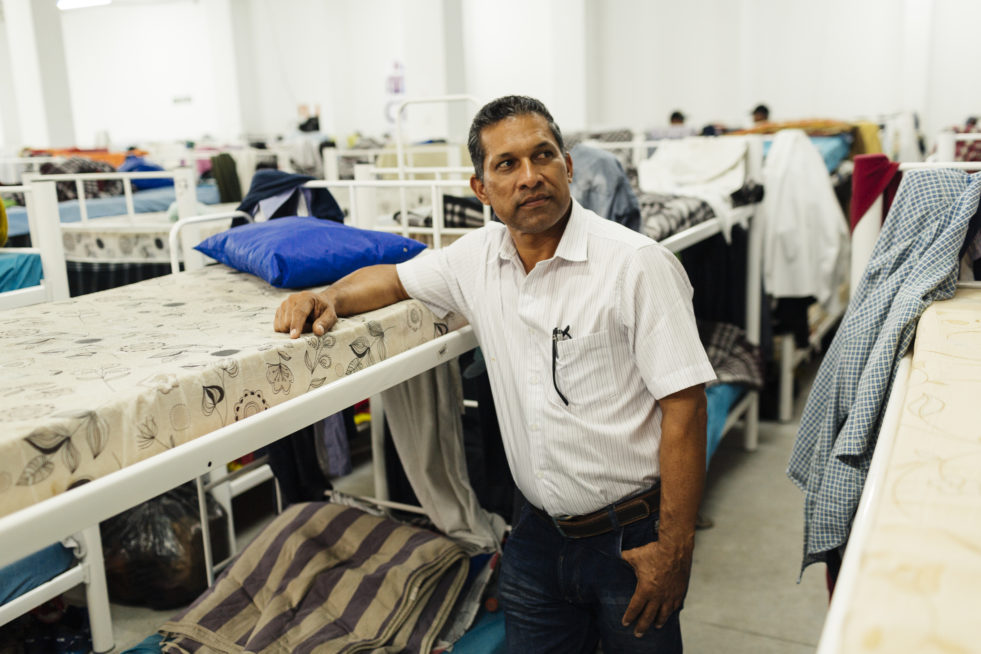
Venezuelan Johnny José Gonzalez visits the Transitory Reception Centre in Sao Paulo, Brazil. Originally from Cumaná, Sucre, Johnny first arrived in Boa Vista, Roraima, where most refugees arrive from Venezuela, and later live at the CTA in São Mateus for six months. ; Since 2015, 2.3 million people have left Venezuela. Over 150,000 Venezuelans have entered Brazil through the remote northern state of Roraima, and more than 65,000 requested asylum thus far. Since April 2018, the Brazilian government has transferred some 3,000 Venezuelans from strained border areas in the north to other cities offering better opportunities for integration, such as São Paulo and Brasilia. Innovative initiatives set up in Brazil by the public sector – involving the federal government, state and municipalities – in collaboration with private companies, UNHCR and local partners are promoting access to the labour market for Venezuelan refugees and migrants in diverse economic activities, such as industry, services, retail, construction and farming. ©UNHCR/Gabo Morales
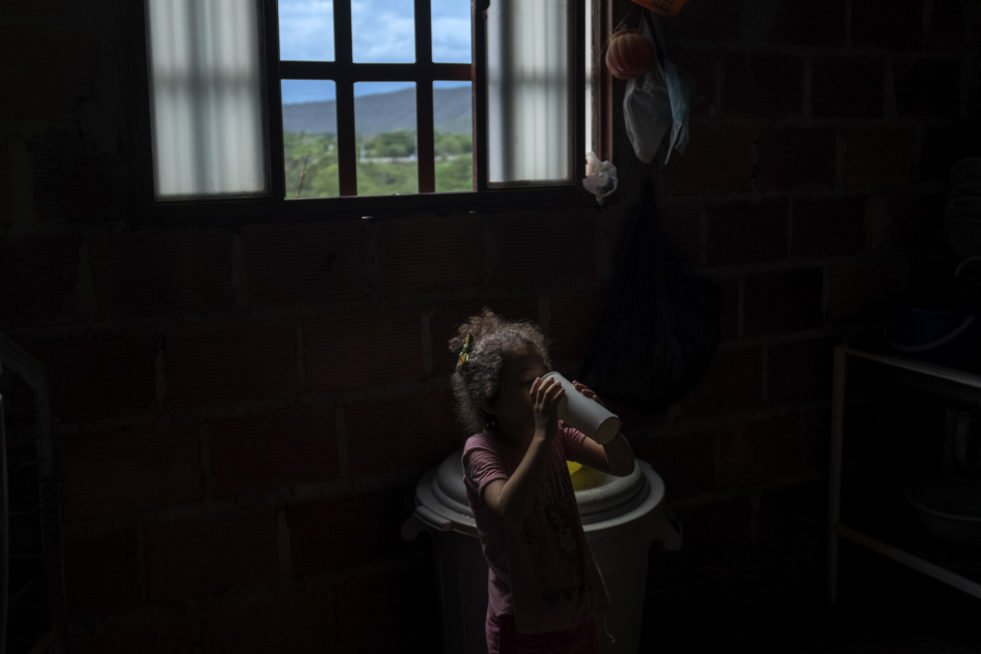
Little Yaniz drinks a glass of water in the house of Graciela Sanchez, an internally displaced Colombian woman who hosts her and five other Venezuelan families. Numbering 18 people in total, they crossed the border in search of better prospects and found a generous welcome in the Las Delicias community in Cúcuta. ; Las Delicias, a community in Cúcuta near the Venezuelan border, originated as a settlement of internally displaced Colombians. UNHCR supported the legal formation of the settlement and has worked on projects including integration, livelihoods, housing and health. In solidarity with Venezuelans fleeing across the border, many in Las Delicias are hosting families in their homes. The UN Refugee Agency is contributing payments of basic services, including water and electricity, to hosts. In total, Colombia is hosting an estimated one million Venezuelans who are seeking refuge from a challenging socio-economic, human rights and political situation. In October 2018, UN High Commissioner for Refugees Filippo Grandi visited Cúcuta to witness the growing humanitarian needs being addressed by staff on the ground. ©UNHCR/Fabio Cuttica
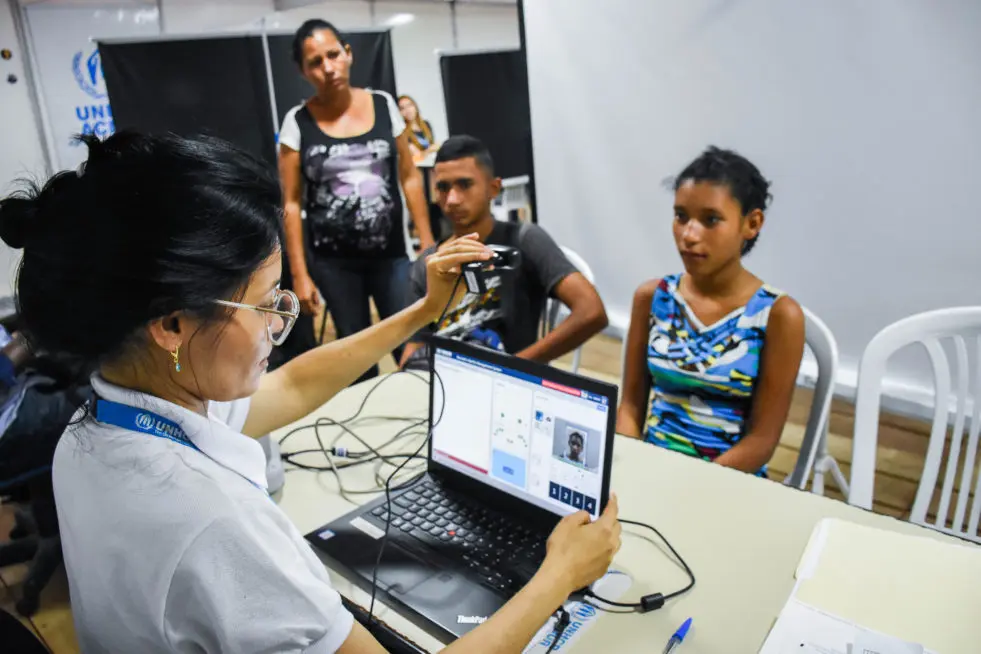
Any asylum seeker who comes to Boa Vista has the access to all services offered in the registration station, P-Trig.
One of the stage the asylum seekers are orientated to pass through, if they want to be allocated in one of the UNHCR shelters, is the registration process.
The registration steps are:
1. Pre-identification: an image of staff using BIMS to identify PoC,
2. Interview: staff talking to a PoC in front of a computer and biometric devices,
3. Picture taking: staff taking a picture of PoC
4. Fingerprints capturing: staff scanning PoC fingers
5. Iris scanning: PoC carrying an iris scanner
6. Shelter ID cards: Fargo ID printed being delivered or being printed. ; The on-going political and socio-economic developments in Venezuela have led to the outflow of an estimated 3 million Venezuelans into neighbouring countries and beyond. While some of them have obtained documentation which allows them to stay legally, the majority of Venezuelans who have left their country have no regular status, and are therefore more vulnerable to any form of exploitation, abuse, violence, trafficking and discrimination. While the responses of States have been generous, local host communities are facing mounting pressure in responding to their needs. The number of Venezuelans seeking asylum has risen yearly.
UNHCR has scaled up its humanitarian response and protection capacity through the opening of two new Field Units in Boa Vista (Roraima state) and Manaus (Amazonas state) in northern Brazil to respond to the influx of Venezuelans seeking international protection in the country since June 2017. Federal Government figures estimate that more than 90,000 Venezuelans are currently living in Brazil. ©UNHCR/Allana Ferreira



